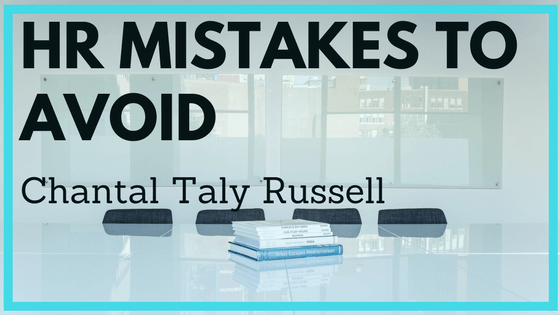Although the HR department is seen as the grounding force within an office when it comes to etiquette and best practices, it’s possible that HR professionals can make mistakes of their own. Whether it involves handling an employee issue in the right way, or making a decision that stays in line with company standards, there are a lot of rules that HR experts must follow themselves. Within every situation there are lines that can become blurred, and that is where the HR department needs to stay strong and ensure that they understand all of the rules they are enforcing themselves.
To help every HR professional excel, I’ve put together a list of HR mistakes to avoid at all costs – both figuratively and literally! To make sure you’re staying in line with best practices, check out this list of what to avoid as an HR expert.
Mistake #1: Not Having Complete Job Descriptions
While a more common mistake in this department is to not have updated job descriptions, there are some companies and HR departments that do not take the time to have complete job descriptions available for current and prospective employees. This is crucial to avoid for two reasons: for your sake and for the sake of your employees. If an employee feels they are going above and beyond their responsibilities, there must first be something to apply those feelings against. This will help the employee feel more secure and confident. On the reverse side, an HR executive or manager can also track job performance and responsibilities against that list to see if an employee really does go above and beyond or if they are only meeting expectations.
Mistake #2: Over or Under Documentation Of Performance Issues
It is vital to review all employee performances and to check in on how things are going from time to time. What many HR departments can do to further performance reviews is document the performances of employees. This practice can also go two ways: you don’t want to over-document on an employee’s performance but you also want to make sure you are making note of any in-office issue or discrepancy that occurs. Adding in some of the positive things each employee is doing will also help in the long run, as you will be able to see a growth or decline pattern for each employee. This can help when looking to promote from within and in the event that an employee is being considered for termination.
Mistake #3: Acting As A Friend Instead of A Manager
The best way to get an employee to open up to you is to let your guard down and offer an olive branch from the beginning. You want your employees to know that they can come to you when needed, however, not establishing professional boundaries from the start of your relationship can lead to a misuse of the relationship. While it is nice to be able to get along with everyone, it’s important that every employee knows that you are still a higher ranking member of the office and that their words and actions can have consequences, even if you have a close relationship. Playing favorites can happen from time to time, even without knowing it. So be careful to monitor your relationships and how you interact with every individual employee.
Mistake #4: Lack Of Written Policies
This one is a no-brainer: how can you enforce the rules if there aren’t any written down? Extremely common in startups and smaller, less formal, businesses, a lack of written policy can, and likely will, lead to confusion and frustration. Every HR department should be equipped with an updated handbook as well as written policies on how the company should be run, discussed, and treated in both formal and informal settings. Without establishing the presence of order, it will be hard to keep things flowing from day to day.

